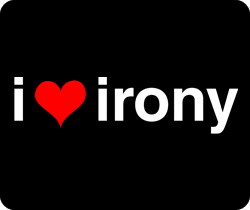The grading is unrelenting. The crud is not entirely cleared from my system. I still owe you the promised post on plagiarism.
Must be time for a meme (specifically, the ABC meme, which I saw at jo(e)’s)!
Author Archives: admin
The obligatory poem from Emily Dickinson.
Although certain bloggers of my acquaintance are suspicious of Emily Dickinson, I think she’s the bee’s knees. It wouldn’t be National Poetry Month without a selection from Emily.
In case you’re hesitating about clicking “Read on”, I will entertain, in the comments, a discussion of whether the position Miss Dickinson advocates in the poem is an ethical one. And, a bonus fun fact: nearly every Emily Dickinson poem can be sung to the tune of “The Yellow Rose of Texas”.
Authorship and plagiarism: an object lesson.
Even though it’s outside the realm of science, given its relevance to recent discussions here, I just can’t leave this story alone:
Via Nanopolitan, the latest on the sad case of Harvard sophomore and author(?) Kaavya Viswanathan, whose situation keeps unravelling. Viswanathan got herself a book contract while still a high school student, and then wrote (maybe) the young adult novel How Opal Mehta Got Kissed, Got Wild, and Got a Life. Recently, it has come to light that dozens of passages in that novel bear an uncanny resemblance to passages in two novels by Megan McCafferty. Some seem to have been lifted word for word, while others seem to have modified just enough not to be immediately detectable with Google.
In the business, we’re accustomed to calling this plagiarism. The only complication here is whether Viswanathan is the one who committed the plagiarism here.
33rd Skeptics’ Circle
Would Coturnix really present the latest Skeptics’ Circle as a research report — with a title with a colon in it?
You’ll have to pop over to Science and Politics to find out.
Commenter calls for better terminology.
A couple posts ago I posed these questions:
What do you want lay people to have as part of their store of scientific knowledge? What piece of scientific knowledge have you found especially useful, or would you like to have if you don’t already?
Among other things, my query prompted this response from commenter tbell1:
I’m usually just a lurker here on science blogs, but I have a pet peeve about the use of the terms ‘lay’ or ‘lay people’ in reference to nonprofessionals in science. Doesn’t it just stink of religion? Am I the only one who hates the term? Can we generate an alternative? ‘non-professional’ is a mouthful, but can’t we just say ‘people’ or ‘the public’ or educated citizens or something?
A poetry-writing chemist for National Poetry Month
Chemists can be quite a literary bunch. Consider Primo Levi. Carl Djerassi. And, of course, Nobel Prize – winning chemist Roald Hoffman. Below the fold, Hoffman’s poem “An unusual state of matter”:
Scientific knowledge for the masses.
Over at Evolgen, RPM links to an article that lists ten “basic questions” to which ten different scientists think high school graduates should know the answers. (It was one question from each scientist, so it’s unclear whether all ten would agree that they are the ten most important questions, or even that all ten of these scientists could answer all ten to the others’ satisfaction.) RPM opines that the list seems heavy on trivia (or at least seemingly random facts) and light on really helpful scientific knowledge. He writes:
Let’s focus on two things: the hypothetical deductive method and essential information that you must know to be able to read the science section of a newspaper.
Well, I’m a bandwagon jumper-upon of long standing, so let me add some items I’d like the masses to be able to take on:
Authorship, guests, and irony.
 My favorite T-shirt says “I [heart] irony. It’s a great shirt, because no one can be absolutely sure that I love irony. Maybe I’m ambivalent about irony and I’m wearing the shirt … ironically. Despite what the Ethan Hawke character in Reality Bites may have said, irony is not as straightforward as meaning the opposite of the literal meaning of the words you are uttering. Rather, it’s meaning something that is some distance from what those words mean — a distance that some in your audience may be able to decipher, but that others may miss altogether.
My favorite T-shirt says “I [heart] irony. It’s a great shirt, because no one can be absolutely sure that I love irony. Maybe I’m ambivalent about irony and I’m wearing the shirt … ironically. Despite what the Ethan Hawke character in Reality Bites may have said, irony is not as straightforward as meaning the opposite of the literal meaning of the words you are uttering. Rather, it’s meaning something that is some distance from what those words mean — a distance that some in your audience may be able to decipher, but that others may miss altogether.
What, you may be asking yourself, does this have to do with the issue of authorship of scientific papers?
Poetry (a poem for National Poetry Month)
Poetry by Marianne Moore
I, too, dislike it: there are things that are important beyond all this
fiddle.
Reading it, however, with a perfect contempt for it, one discovers
in
it after all, a place for the genuine.
“The Real Science Ethics Issues”
Today at Inside Higher Education, an article identifies “The Real Science Ethics Issues”. Which means, I suppose, you don’t have to keep taking my word about what’s an issue and what is not. The focus of the article is not on the flashier instances of fraud, but on more mundane stuff that may rot the scientific enterprise from the inside.
